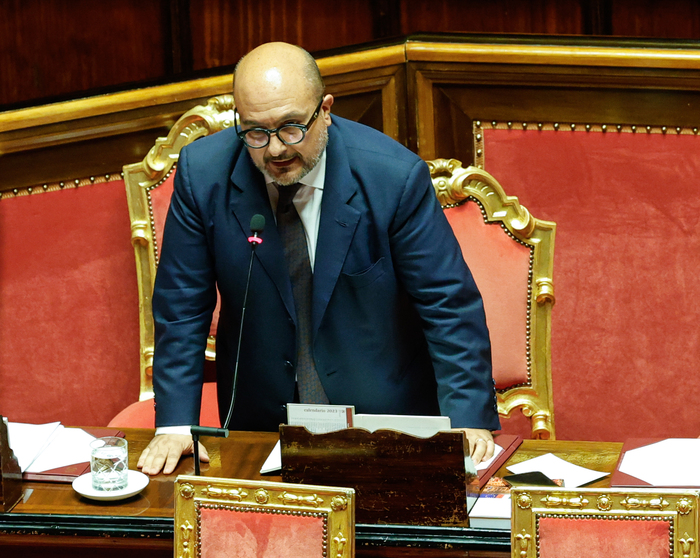Senate Greenlights Shoah Museum in Rome: A Landmark Decision
Editor’s Note: The Italian Senate has just approved the establishment of a permanent Shoah Museum in Rome. This momentous decision marks a significant step in Holocaust remembrance and education.
Why This Matters: Honoring the Past, Shaping the Future
The Italian Senate's approval to build a permanent Shoah Museum in Rome is not merely a symbolic gesture; it’s a critical step in ensuring that the horrors of the Holocaust are never forgotten. This museum will serve as a vital educational resource, combatting Holocaust denial and promoting tolerance and understanding. The museum's presence in Rome, a city with a complex history intertwined with the events of World War II, underscores Italy's commitment to confronting its past and fostering a more informed and compassionate future. Key themes the museum will likely address include the persecution of Italian Jews, the role of the Italian fascist regime, and the experiences of survivors and rescuers. Understanding this dark chapter in history is paramount to preventing future atrocities.
Key Takeaways
| Point | Description |
|---|---|
| Location: | Rome, Italy |
| Significance: | Permanent memorial to the victims of the Holocaust, combating Holocaust denial, promoting education and tolerance. |
| Impact: | Enhanced Holocaust education in Italy and Europe, a powerful symbol of remembrance and reconciliation. |
| Expected Features: | Exhibits, archives, educational programs, potentially survivor testimonies (recorded or written). |
Senate Greenlights Shoah Museum in Rome: A New Era of Remembrance
The decision by the Italian Senate marks a significant turning point in Italy’s approach to Holocaust remembrance. For years, advocates have pushed for a dedicated, permanent museum in the nation's capital. This move signifies a profound acknowledgment of the suffering endured by Italian Jews during the Holocaust and the importance of preserving their memory. The museum's creation isn't just about commemorating the past; it's about actively shaping a future where such atrocities are unthinkable.
Key Aspects of the Shoah Museum Project
- Location and Accessibility: The exact location is yet to be officially announced, but the aim is to ensure optimal accessibility for visitors from across Italy and internationally.
- Exhibits and Archives: The museum will feature a comprehensive collection of artifacts, documents, and personal testimonies, meticulously documenting the experiences of Italian Jews during the Holocaust.
- Educational Programs: A cornerstone of the museum will be its robust educational programs, tailored to diverse audiences, including school groups, academics, and the general public. These programs will employ innovative approaches to teaching about the Holocaust and its lasting impact.
Interactive Elements: Engaging with History
Survivor Stories: Preserving Testimony
The museum will feature powerful oral histories and written accounts from Holocaust survivors, offering intimate and personal perspectives on the atrocities they experienced. These firsthand accounts will humanize the victims and make the history profoundly relatable. This section aims to bridge the gap between historical facts and the lived reality of those who endured the horrors of the Shoah.
Resistance and Rescue: Acts of Courage
This section will highlight the acts of courage and resistance undertaken by individuals and groups who defied the Nazi regime, risking their own lives to save others. It will showcase the resilience of the human spirit in the face of unimaginable cruelty and celebrate those who demonstrated extraordinary bravery during a time of darkness.
People Also Ask (NLP-Friendly Answers)
Q1: What is the Shoah Museum in Rome?
A: The Shoah Museum in Rome will be a permanent museum dedicated to commemorating the Holocaust, particularly focusing on the experiences of Italian Jews. It aims to educate and remember the victims, promoting tolerance and understanding.
Q2: Why is the Shoah Museum important?
A: The museum is crucial for preserving the memory of the Holocaust, combating Holocaust denial, and educating future generations about this critical period in history to prevent similar atrocities from happening again.
Q3: How can I contribute to the Shoah Museum?
A: Keep an eye out for announcements on how to donate or volunteer. You can also support organizations dedicated to Holocaust remembrance and education.
Q4: What are the main challenges in creating this museum?
A: Challenges include securing funding, finding a suitable location, gathering and preserving artifacts and testimonies, and creating engaging and educational exhibits.
Q5: When will the Shoah Museum open?
A: A precise opening date hasn't been set yet. The timeline will depend on fundraising, construction, and exhibit development.
Practical Tips for Learning About the Holocaust
- Visit existing Holocaust museums and memorials.
- Read survivor testimonies and historical accounts.
- Watch documentaries and films about the Holocaust.
- Engage in discussions with others about the Holocaust.
- Support organizations dedicated to Holocaust education and remembrance.
- Teach children and young people about the Holocaust.
- Challenge Holocaust denial and antisemitism wherever you encounter it.
- Remember that the lessons of the Holocaust are still relevant today.
Summary (Riepilogo)
The Italian Senate's approval of the Shoah Museum represents a profound commitment to remembering the victims of the Holocaust and fostering a culture of tolerance and understanding. This new museum will become a critical educational resource, ensuring that the lessons of the past inform a more peaceful future.
Closing Message (Messaggio conclusivo)
The establishment of the Shoah Museum in Rome serves as a potent reminder of the importance of remembering the past to build a better future. Let us all commit to learning from this tragedy and actively combating hatred and intolerance in all its forms.
Call to Action (Chiamata all'azione)
Share this article to spread awareness of this important development. Stay updated on the museum's progress by following [link to relevant website/social media].

